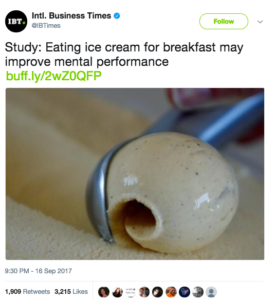Takes two to tango
Right from the start of StatsChat we’ve looked at stories about how men or women have more sexual partners. There’s another one in the Herald as a Stat of the Week nomination.
To start off, there’s the basic adding-up constraint: among exclusively heterosexual people, or restricted to opposite-sex partners, the two averages are necessarily identical over the whole population.
This survey (the original version of the story is here) doesn’t say that it just asked about opposite-sex partners, so the difference could be true. On average, gay men have more sexual partners and lesbians have fewer sexual partners, so you’d expect a slightly higher average for all men than for all women. Using binary classifications for trans and non-binary people will also stop the numbers matching exactly.
But there are bigger problems. First, 30% of women and 40% of men admit this is something they lie about. And while the rest claim they’ve never lied about it, well, they would, wouldn’t they?
And the survey doesn’t look all that representative. The “Methodology” heading is almost entirely unhelpful — it’s supposed to say how you found the people, not just
We surveyed 2,180 respondents on questions relating to sexual history. 1,263 respondents identified as male with 917 respondents identifying as female. Of these respondents, 1,058 were from the United States and another 1,122 were located within Europe. Countries represented by fewer than 10 respondents and states represented by fewer than five respondents were omitted from results.
However, the sample is clearly not representative by gender or location, and the fact that they dropped some states and countries afterwards suggests they weren’t doing anything to get a representative sample.
The Herald has a bogus clicky poll on the subject. Here’s what it looks like on my desktop
On my phone it gets a couple more options visible, but not all of them. It’s probably less reliable than the survey in the story, but not by a whole lot.
This sort of story can be useful in making people more willing to talk about their sexual histories, but the actual numbers don’t mean a lot.


